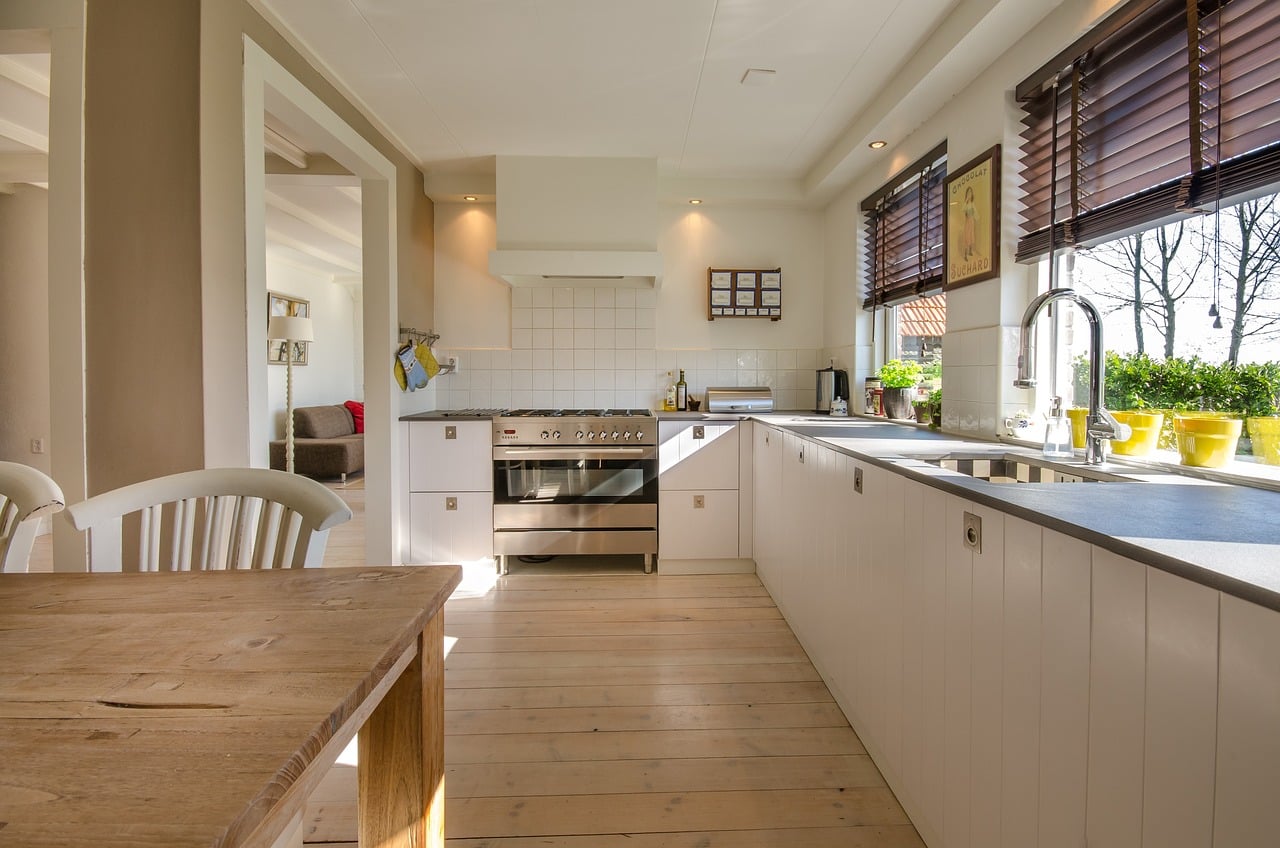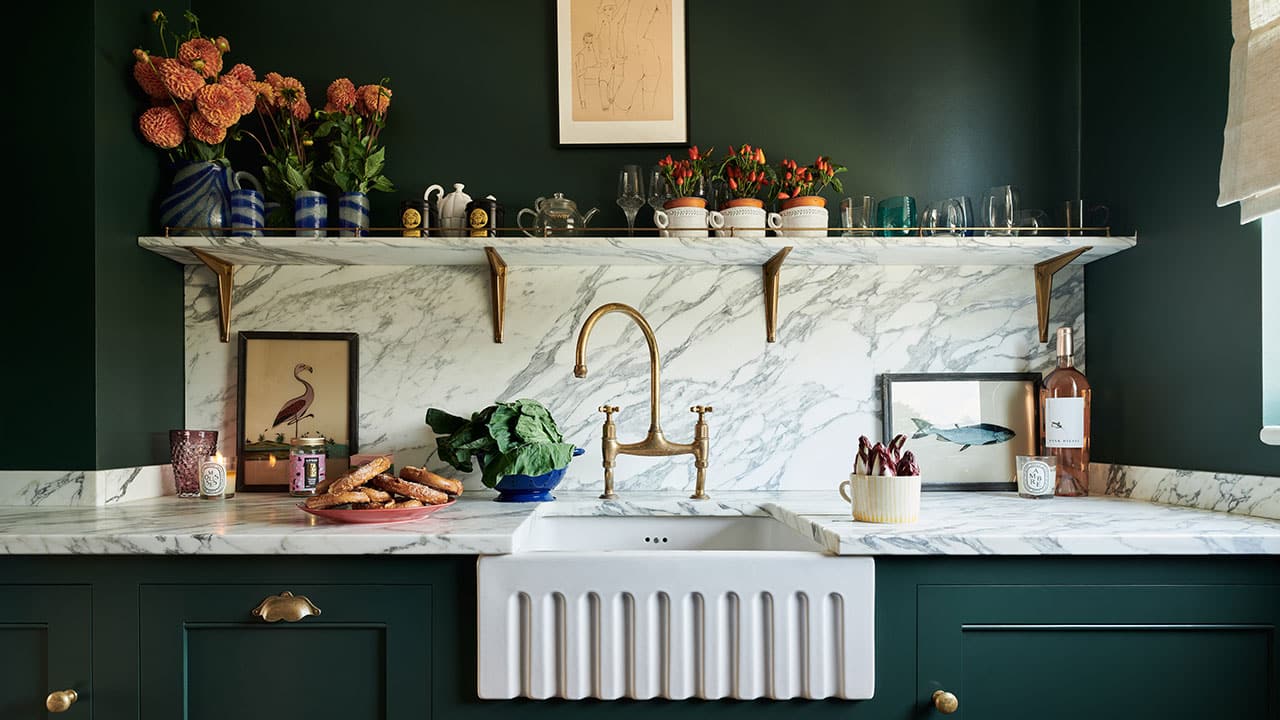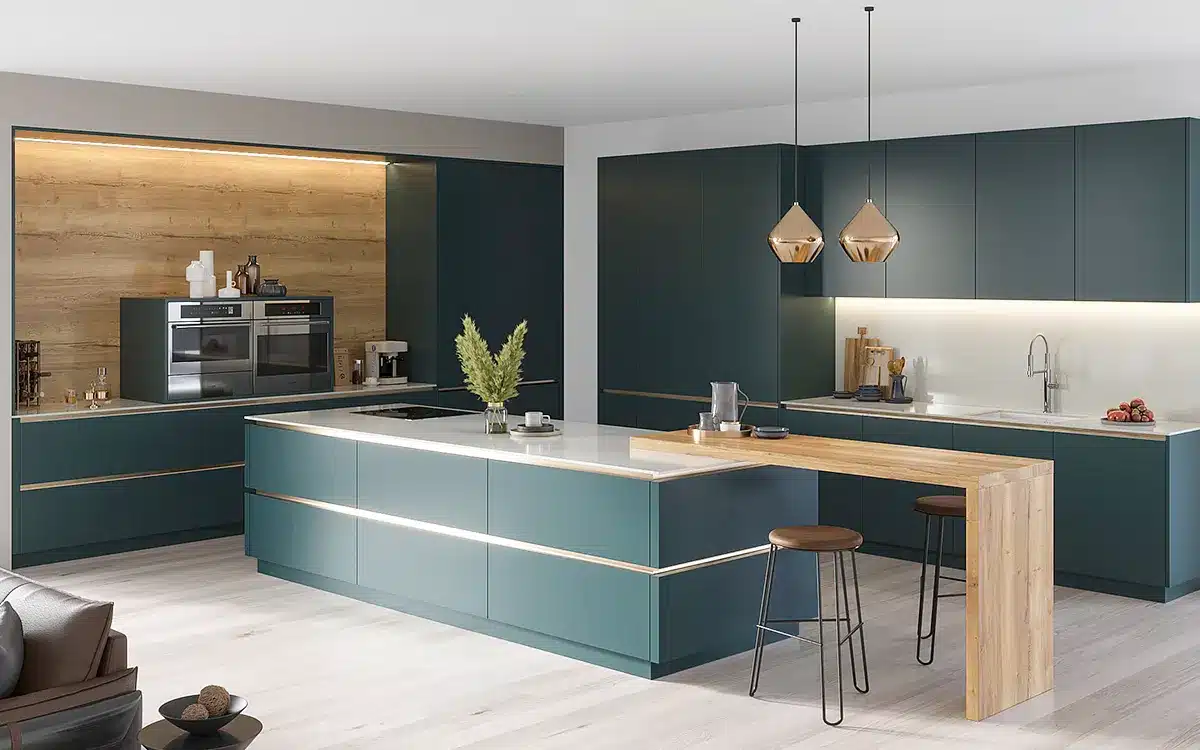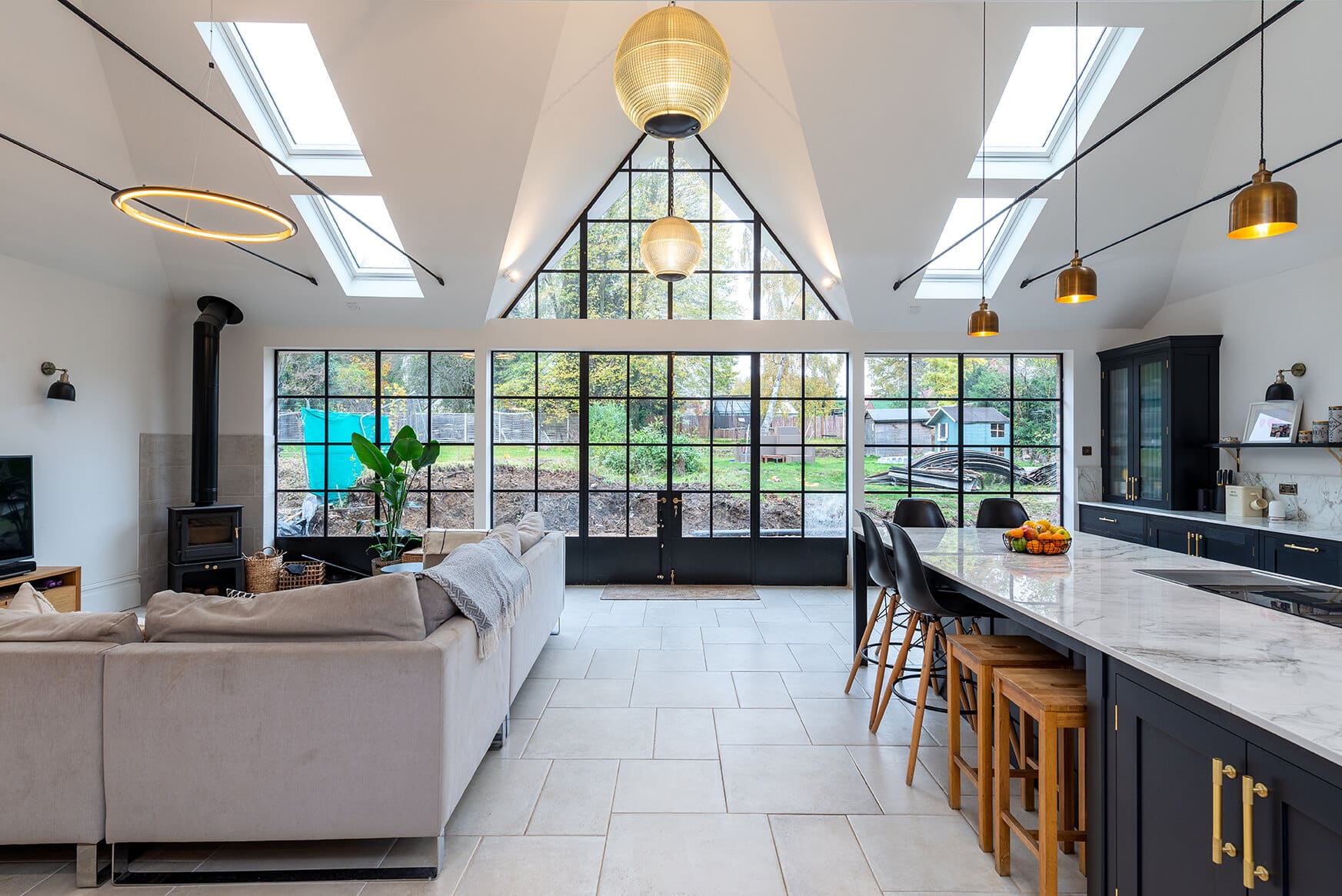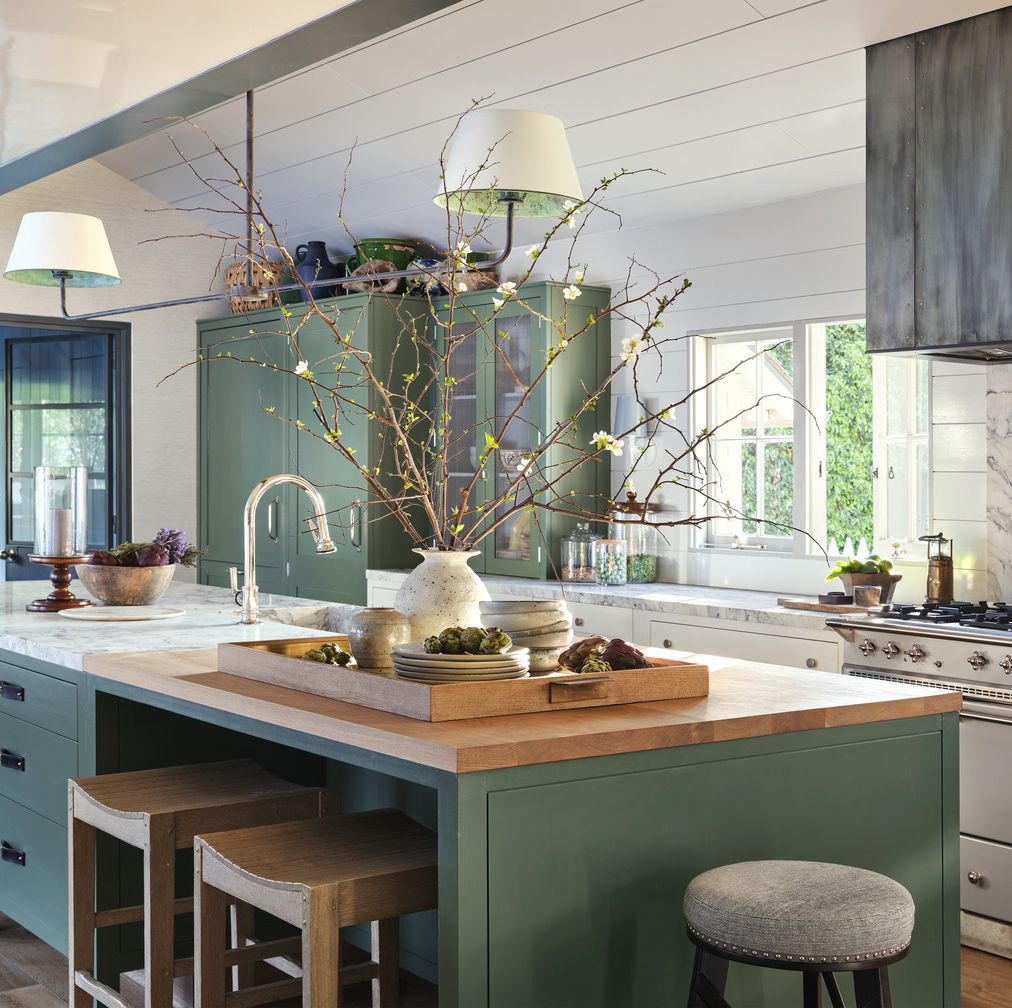Sustainable Kitchen Remodeling: Eco-Friendly Solutions for Modern Homes
In an era when environmental consciousness is at the forefront of many homeowners’ minds, sustainable kitchen remodeling has become popular. Not only does it contribute to reducing carbon footprints, but it also enhances the kitchen’s functionality and aesthetics.
This article explores eco-friendly solutions for modern homes, offering insights into materials, designs, and practices that promote sustainability.
The Importance of Sustainable Kitchen Remodeling
Sustainable kitchen remodeling is increasingly recognized as essential today, where environmental concerns and resource depletion are at the forefront of global challenges. The kitchen is the heaven in your home where families come together to enjoy their meals and make memories.
However, traditional kitchen remodeling practices can have significant environmental impacts, from excessive waste generation to energy inefficiency. By embracing sustainable practices in kitchen remodeling, homeowners can reduce their ecological footprint while creating a healthier living space.
One of the primary benefits of sustainable kitchen remodeling is the conservation of natural resources. This includes choosing eco-friendly materials for countertops and cabinets, reducing the demand for virgin resources, and minimizing deforestation and habitat destruction.
How to Incorporate Sustainability in Kitchen Remodeling
Let’s discuss some ways to incorporate sustainability during kitchen remodeling.
Eco-Friendly Materials
When embarking on a sustainable kitchen remodeling project, eco-friendly materials can significantly reduce environmental impact while creating a healthier living space. There are many ways to use eco-friendly materials for remodeling.
For instance, you can use recycled glass, paper composite, and reclaimed wood for countertops. Material selection is vital to any kitchen remodeling project. The material you choose should suit your lifestyle and reflect your personality.
Quartz is one of the eco-friendly materials you can choose. There’s an abundance of quartz in nature, and it is also recyclable. However, you can also go for traditional countertop materials. Besides quartz, granite, marble, quartzite, soapstone, and porcelain are some of the materials recommended by the kitchen countertop experts at Artistic Stone.
Bamboo is a rapidly renewable resource that makes for excellent cabinetry material. Its fast growth rate and strength make it an eco-friendly choice for homeowners looking to minimize their carbon footprint.
Cork is harvested from the bark of cork oak trees, allowing the trees to regenerate and continue absorbing carbon dioxide. It’s a comfortable, durable, and sustainable flooring option for kitchens.
Volatile organic compounds (VOCs) found in traditional paints can emit harmful gasses into the air. Opting for low-VOC or zero-VOC paints reduces indoor air pollution and promotes better air quality in the kitchen.
According to the EPA, concentrations of many VOCs are relatively higher indoors, up to ten times. Therefore, using low or zero-VOC paints can also benefit your health.
Energy-Efficient Appliances
When considering a sustainable kitchen remodeling project, selecting energy-efficient appliances is crucial for reducing environmental impact and lowering energy bills. Start by assessing your current appliances to determine which ones consume the most energy.
Look for Energy Star-certified appliances, as they meet strict energy efficiency guidelines set by the Environmental Protection Agency (EPA) and Department of Energy (DOE). These appliances are designed to consume less energy while providing the same level of performance as standard models.
Investing in energy-efficient refrigerators can significantly decrease energy consumption in the kitchen. Look for models with advanced insulation and temperature control features to minimize energy usage. Additionally, refrigerators with smart features like temperature monitoring and energy-saving modes should be considered to reduce electricity consumption further.
Incorporating energy-efficient lighting fixtures is another essential aspect of sustainable kitchen remodeling. Choose LED bulbs for overhead lighting and under-cabinet fixtures, as they consume less energy and last longer than traditional bulbs. According to Energy.gov, LEDs use up to 90% less energy. Moreover, they can last around 25 times longer than their traditional counterparts.
Water Conservation
Installing water-efficient fixtures and appliances is one effective approach to conserving water in the kitchen. These include low-flow faucets, aerators, and water-saving dishwashers. These fixtures are designed to reduce water consumption without compromising functionality, allowing you to perform kitchen tasks efficiently while using less water.
Another important aspect of water conservation in the kitchen is proper maintenance of plumbing systems. Fixing leaks promptly can prevent significant water wastage over time.
Regularly inspecting pipes, faucets, and appliances for leaks and addressing them immediately can help conserve water and prevent unnecessary expenses. According to ABC News, experts say that thousands of gallons of water are lost daily in homes around America due to leaks.
In addition to efficient fixtures and maintenance, adopting mindful water usage habits can further enhance water conservation efforts. Simple practices such as turning off the tap when not in use and scraping dishes instead of pre-rinsing can contribute to significant water savings.
Waste Reduction
Designing with sustainability in mind can significantly contribute to waste reduction. Opting for modular and prefabricated components allows for more precise measurements and reduces the likelihood of excess material waste during installation.
Additionally, designing for longevity by selecting durable materials and timeless styles can help avoid the need for frequent remodeling. This can help reduce overall waste generation over time.
Material selection plays a crucial role in waste reduction efforts. Choosing reclaimed or recycled materials whenever possible can divert waste from landfills and reduce the demand for virgin resources. Furthermore, selecting materials with high recyclability or biodegradability at the end of their life cycle ensures they can be disposed of responsibly.
Implementing efficient waste management practices during the construction phase is essential. This includes segregating materials on-site for recycling or reuse and working with contractors who prioritize waste reduction and recycling. Properly sorting and recycling construction waste can divert significantly from landfills, contributing to sustainability efforts.
Frequently Asked Questions
What Do You Do to Make Your Home More Sustainable and Eco-Friendly?
Making your home more sustainable and eco-friendly involves various practices and choices to reduce environmental impact and promote long-term ecological balance. These can include energy-efficient appliances, renewable energy sources like solar panels, water-saving fixtures, and using eco-friendly materials in construction and renovation.
What Is the Importance of Sustainability in the Kitchen?
The kitchen is often the heart of the home and a hub of activity where significant energy and resources are consumed. By embracing sustainable kitchen practices, you can conserve natural resources, minimize waste generation, and promote a healthier environment for yourself and future generations.
What Is the Meaning of Green Kitchen?
The term green kitchen refers to a kitchen design and lifestyle that prioritizes environmental sustainability. This encompasses various aspects, including energy efficiency, water conservation, waste reduction, and eco-friendly materials.
To conclude, sustainable kitchen remodeling allows homeowners to create beautiful, functional spaces while minimizing environmental impact. Modern homes can embrace sustainability without compromising style or performance by choosing eco-friendly materials, energy-efficient appliances, and water-saving fixtures. With thoughtful design choices and conscientious practices, every kitchen remodel can contribute to a greener, more sustainable future.

